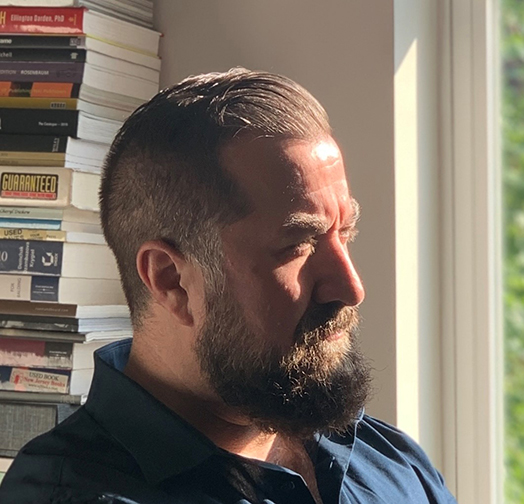Ayodeji Ojeniran

University Student (Studying BA Architecture(Design Studies) at the University of Liverpool), Liverpool, United Kingdom
What inspired you to want a life in Architecture and the creative industries?:
My inspiration? Well, we all walk, travel, and commute within and around our cities and towns, and no matter how tall or short we are, we are all small pawns looking around at the kings and queens of buildings and structures around us, as the world is our greatest chess board. There is no limitation when it comes to architecture; the limit is in our minds, and even then, there is still a chance and opportunity to change it to better the world around us. On a day-to-day basis, I can see the same building many times and still have even more to say about it; I can see a pavilion once and it can never leave my mind again; or I can see an unfinished structure and create an infinite amount of ways to finish it in my own eyes. My inspiration? Well, homelessness is a worldwide issue. We have such grand pieces of architecture around the world in the richest and most prosperous of countries, yet those same places still have homelessness and a lack of basic housing for their inhabitants. As architects or designers, yes, their roles are to complete and create pieces for a given specification, but who is to say that we cannot go beyond those demands by designing shelters or temporary to semi-permanent units for those who have no shelter to be accommodated? I want to use the field of architecture to ensure that homelessness is really being tackled, going beyond my possible role of just sticking to the specification and designing an extension to pre-existing architecture or new designs with multi-functioning demands for people to be able to inhabit for housing without taking away from the demands of the main functions of the piece.
In regards to the film and creative industries, the play of Macbeth and its movie adaptation in 2010 was a movie that really inspired me to learn more about the ways in which plays come to screen in front of us. As a past reader of Shakespeare, I had come to the realisation that wanting to create a story lies in just starting it, in the same way that a final design starts with just a concept. The creativeness that we yearn for lies in us just starting out our thoughts; the process in which we create the end product can and may sometimes be better than the end product.
Who inspired you in finding your path to Architecture/Film and the creative industries?:
Growing up, I was always fond of the creation of skyscrapers and how such complex shapes came together to create complex structures. With regards to who actually inspired me, I had to pin it all on one person. My father definitely took notice of me liking a lot of buildings, as I was always looking out the window whenever he drove to different places, asking what buildings I liked, and so he took me to museums and many historical buildings to see how structures were formed in the past and how they were different from when I was growing up. Norman Forster is a key player that I came to learn about and pay close attention to when I first saw the City Hall, ‘The Scoop’, design in London by him, which was a truly unique design right in the centre of a place where a lot of the surrounding buildings are more on the side of squared or rectangular-shaped structures.
As a fan of anime, I have been inspired by many voice actors that play characters that I like and relate to. Hiroshi Kamiya, as the voice actor of the character Trafalgar Law in the anime show One Piece, is an amazing voice actor who really stuck to his role and made the apithome of Law truly what the character is like in the manga books. I too hope that I can use my voice to be able to bring written characters to life so that they are able to not only inspire others but also cause a shift in attitude towards people so that they can see that all it takes is an effort in your desire to start something that you want to do.
How you unlock obstacles and overcome bias in your work?:
Before I can unlock any obstacles, I have to make sure that I am aware of them, trying to ensure that I self-regulate myself and that I am always critically thinking about what I have done that has possibly made me fail and how I can ensure that that does happen, while also learning from what decisions made me fail and how I can make the right ones to guarantee success. Journaling is another way that I have come to unlock many obstacles. I simply write down how/what I feel and why, and once written out, I no longer have to dwell on it in a self-destructive way.
As humans, we are all prone to bias; we all take our own thoughts too highly to ourselves sometimes, which in moderation is not bad, i believe, but the quote says ‘two heads are better than one’, having and seeking out diverse perspectives will without aid you to see you work in different ways and improve from their feedback.
I am also a young Christian, so I am able to hand all my problems and obstacles to God. I put my trust in Him, knowing that I am only human and that He will get me through any and every situation I may encounter.
What improvements do you feel are required to promote effective change in the academic and working environment?:
Time management and discipline are what I am currently teaching and self-inflicting on myself more, especially as a university student. We may have a timetable, but it does not command us to go to our lectures/seminars; it only guides us. Discipline comes down to choice. One can choose to lay in bed and not do any work, or you can set an alarm and ensure that you are more than ready to get up and learn some more. Time management comes into play with this as well, as one can try to discipline themselves, but if you have no awareness of time or awareness of the things that you need to get done by a certain time, you will never be able to fully see your potential. Completing tasks in parts and not all at once in one go helps you to also improve and promote effective change in academia and in the working world, as it gives you the chance to keep a fresh and constant mind on what you want to add to the work at hand and to have more effective feedback on the smaller parts than rather possibly facing a big redo of a whole piece of work that was done in one go.
With the ‘completion of tasks in parts’ improvement, having goals, plans, or objectives that you are trying to reach gives you a chance to also self-improve; one is able to challenge themselves to do better and to do more than what they have already done. It is also a refreshing feeling that allows you to seek more achievements














